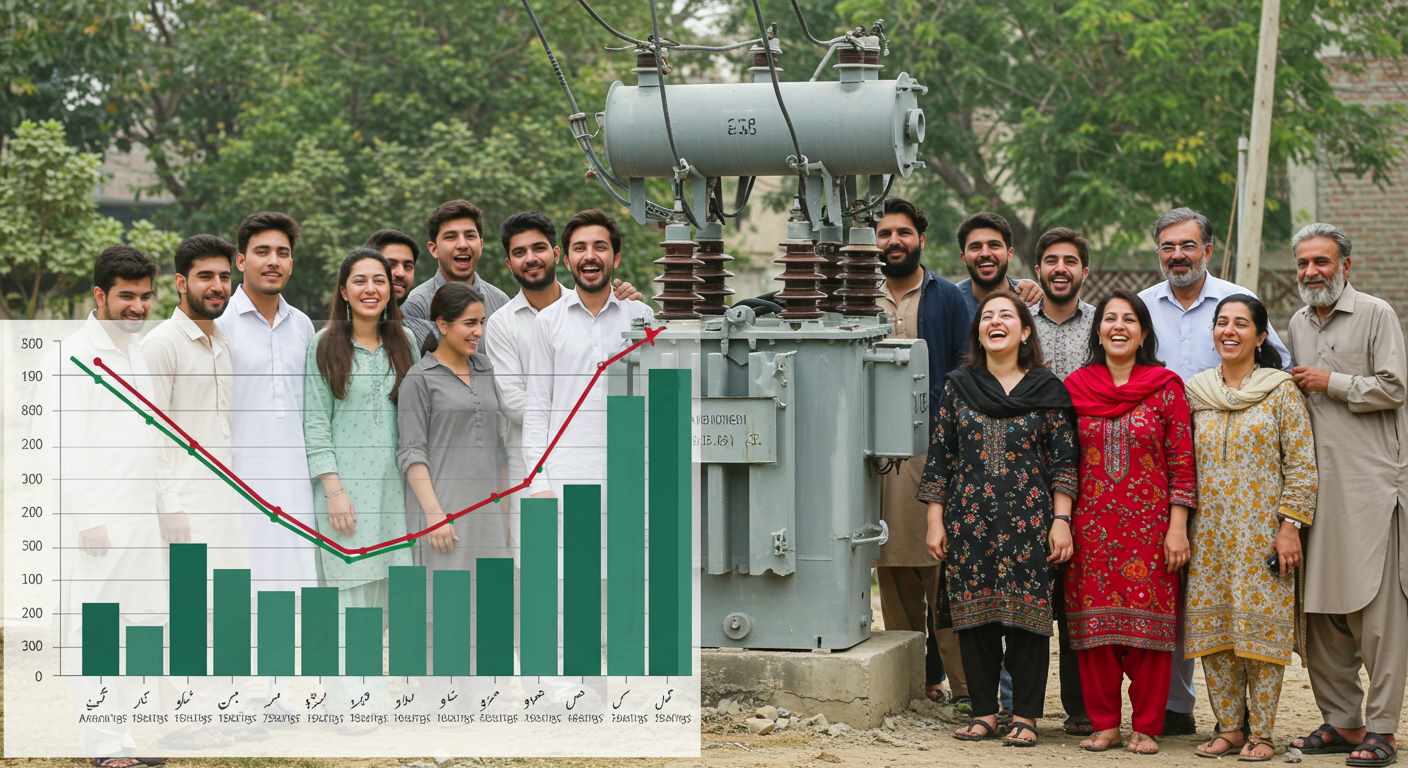Good News for the Public: Electricity Prices Likely to Decrease Across Pakistan, Including Karachi

Amid ongoing inflation and rising poverty, the people of Pakistan are finally hearing some good news. The Power Division has submitted a proposal that could lead to a reduction in electricity tariffs across the country, including Karachi. If approved, millions of households may experience relief in their monthly electricity bills starting from the next financial year.
According to ARY News, the Power Division has filed a formal application for a uniform electricity tariff across the country. This move is aimed at streamlining electricity rates and ensuring that all consumers, regardless of their location, pay the same price for electricity.
NEPRA to Conduct Hearing on July 1
The National Electric Power Regulatory Authority (NEPRA) is set to hold a public hearing on July 1 to review and possibly approve the Power Division’s proposed changes.If NEPRA approves the proposed changes, the revised electricity rates for domestic users Rs. 1.16 per unit in the base electricity tariff for residential users.
The proposed reduction is part of the Power Division’s plan for the upcoming fiscal year, and if implemented, it would result in a decrease in the maximum base tariff for domestic consumers from the current Rs. 48.84 per unit to Rs. 47.69 per unit.
Detailed Breakdown of the Proposed Tariff Reduction:
The proposal outlines a detailed tariff structure based on different consumer categories and monthly electricity consumption. Here’s a simplified summary of the suggested rates:
Lifeline Consumers (Low-Usage Households):
These consumers use the least amount of electricity and are given special relief to help them manage their expenses.
.Consumers using up to 50 units per month will continue to be charged Rs. 3.95 per unit, remaining unchanged from the current tariff.
.Those consuming between 51 and 100 units will also see no adjustment, keeping the tariff steady at Rs. 7.74 per unit.
Protected Domestic Consumers:
.Protected consumers are those who use electricity modestly but are not classified under lifeline users.
.Up to 100 units: Tariff proposed to be reduced by Rs. 1.15 to become Rs. 10.54 per unit
.For users falling in the 101 to 200 unit range, the rate is proposed to be set at Rs. 13.01 per unit, reflecting a slight reduction to ease the burden on average households.
.Households consuming up to 100 units under the non-protected category will continue to be billed at Rs. 22.44 per unit, with no reduction planned for this slab.
.301 to 400 units: Reduced to Rs. 37.99 per unit
.401 to 500 units: Slight reduction of Rs. 1.14 to Rs. 40.22 per unit
.501 to 600 units: Rate proposed to go down by Rs. 1.16 to Rs. 41.62 per unit
.601 to 700 units: Reduced by Rs. 1.16 to Rs. 42.76 per unit
.For high-usage consumers exceeding 700 units monthly, the tariff is expected to drop by Rs. 1.05, bringing the new rate down to Rs. 47.69 per unit.
Non-Protected Domestic Consumers:
These users typically consume more electricity and do not qualify for protective rates.
.Up to 100 units: Tariff to remain at Rs. 22.44 per unit
.The same per-unit rates and reductions proposed for protected consumers from 101 units and above are expected to apply here as well.
NEPRA’s Earlier Approval
It is important to note that NEPRA had already approved a Rs. 1.50 per unit decrease in the base tariff for the next fiscal year. The regulatory authority has sent this decision to the Federal Government for final approval and implementation. The Power Division’s latest application for a uniform tariff is part of the government’s broader energy reform strategy, which seeks to remove regional disparities and make power prices fair and transparent.
Why This Matters
The proposal comes at a time when people across Pakistan are grappling with the twin challenges of high inflation and skyrocketing utility bills. A drop in electricity prices could provide much-needed financial relief, especially to lower and middle-income households who are forced to cut back on essential needs to pay their energy bills.
This move will also help reduce regional inequalities in electricity pricing. For years, people in cities like Karachi have been paying different rates than those in other provinces, leading to long-standing complaints of unfair treatment. A uniform national tariff could help bridge that gap.
What’s Next?
NEPRA will evaluate the application and listen to all stakeholders, including public representatives and energy experts, during the July 1 hearing. If the proposal is approved, the new rates are expected to take effect with the start of the new financial year. This could signal the beginning of a more affordable and equitable energy policy in Pakistan.
Final Thoughts
While these proposals are still under review, their approval would be a significant step toward lowering the cost of living in Pakistan. With economic pressure mounting, any reduction in utility bills will be a welcome relief for households across the nation. However, implementation and enforcement will be key. Citizens will be closely watching the outcome of the July 1 NEPRA hearing, hoping for a decision that prioritizes public welfare over profit.